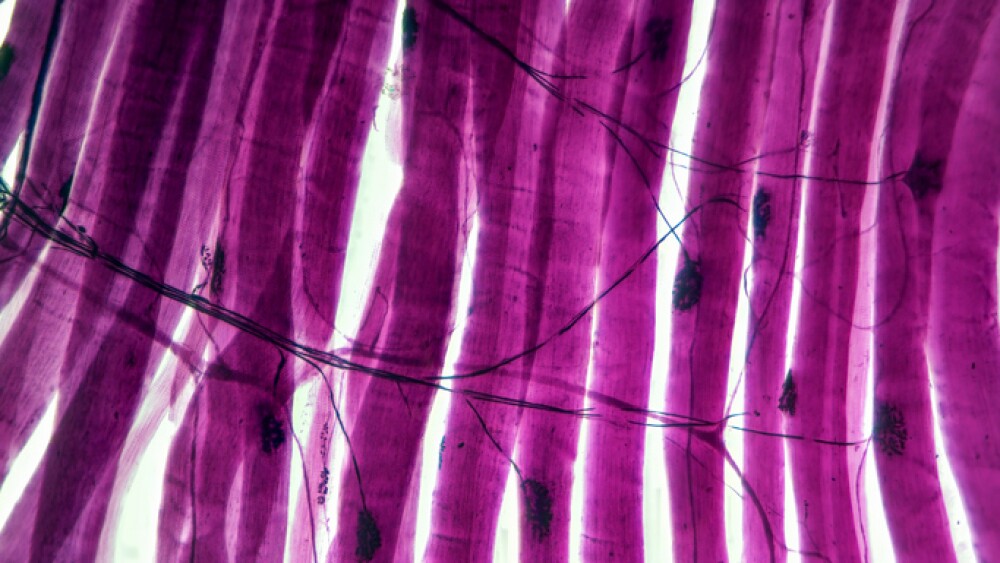BOSTON, MA--(Marketwire - September 15, 2009) -
| Highlighted Links |
http://www.cardioxyl.com/ |
http://www.cardioxyl.com/technology/index.php |
Cardioxyl is a clinical stage cardiovascular pharmaceutical company developing CXL-1020, an intravenous agent for the treatment of Acute Decompensated Heart Failure (ADHF). ADHF is an unstable and life-threatening exacerbation of chronic heart failure.
Chris Kroeger, MD, President and Chief Executive Officer of Cardioxyl Pharmaceuticals, commented, "These findings have provided our research team with crucial information about CXL-1020's unique mechanism of action, and laid the foundation for Cardioxyl's current Phase I/IIa study. The data suggest a highly valuable pharmacologic profile, as CXL-1020 improved contractility, enhanced relaxation and reduced load, addressing each of the three key physiologic parameters critical to the treatment of ADHF."
Reza Mazhari, Ph.D., Vice President, Research and Pharmacology, and a Cofounder of Cardioxyl Pharmaceuticals, commented, "Consistent with the novel mechanism of action of HNO, CXL-1020 demonstrates a uniquely effective and safe profile in two predictive, state-of-the-art animal models of heart failure. The lack of de novo ventricular ectopy and a neutral effect on heart rate, combined with significant dose-dependent improvements in relaxation, cardiac loads, and contractility differentiates CXL-1020 from the majority of other cardiotonic and vasodilatory agents on the market and in development."
Poster 1
In the first poster titled, "Intravenous Infusion of Novel HNO Donor, CXL-1020, Improves Left Ventricular (LV) Contractile Function in Normal and Failing Dogs," Cardioxyl examined intravenous effects of CXL-1020 on LV systolic and diastolic function in canines with advanced heart failure produced by rapid pacing of the heart for three weeks. The research performed at Johns Hopkins University showed that that CXL-1020 did not alter heart rate, and modestly reduced blood pressures in a dose dependant manner. CXL-1020 also significantly increased end-systolic elastance, a measure of chamber contractility while also reducing end-diastolic pressure and enhancing the rate of ventricular filling by accelerating diastolic relaxation. These data demonstrate that CXL-1020 enhances contractility in a load-independent manner, differentiating its hemodynamic profile from nitrovasodilators.
Poster 2
The second poster presentation titled, "Acute Intravenous Infusion of CXL-1020, a Nitroxyl Donor, Improves Left Ventricular Function in Dogs with Advanced Heart Failure," described research performed in canines with ischemic heart failure performed at the Henry Ford Hospital. The results showed that CXL-1020 had no effect on heart rate, and tended to mildly decrease mean aortic pressures (AoP), while producing significant enhancement of ventricular relaxation and contractile indices. In particular, CXL-1020 augmented ejection fraction by 25-40 percent in a dose and time-dependent manner. CXL-1020 also significantly increased filling velocity, consistent with improved ventricular relaxation, and also lowered end-systolic and end-diastolic volumes and pressures.
About Nitroxyl (HNO) and CXL-1020
Cardioxyl has developed a nitroxyl chemistry platform technology that serves as the foundation for the company's drug discovery efforts. The pioneering work of Drs. Paolocci, Kass, and Toscano, Cardioxyl's scientific founders at Johns Hopkins University, and their colleagues first elucidated the cardiovascular effects of nitroxyl in 2003, and Cardioxyl has since developed a formidable intellectual property portfolio and industry leading nitroxyl chemistry, pharmacology, manufacturing and formulation expertise.
Cardioxyl's lead program, CXL-1020, is a proprietary compound generated by Cardioxyl's nitroxyl chemistry platform. CXL-1020 is in development for an initial indication of ADHF, and is currently in a Phase I/IIa clinical trial.
About Acute Decompensated Heart Failure (ADHF)
ADHF is an acute exacerbation of congestive heart failure and the leading diagnosis at the time of discharge from U.S. hospitals and the most common cause of hospitalization for patients over 65 years of age. ADHF is a deadly condition, with in-hospital mortality rates of 2-6 percent and six month readmission rates as high as 30-60 percent. Episodes of ADHF are marked by a severe diminution of cardiac function that typically result in fluid accumulation in the lungs (pulmonary edema) and consequent severe shortness of breath. There were 1.1 million hospitalizations for acute heart failure in the U.S. in 2006. Among patients hospitalized with ADHF, the thirty day mortality rate is approximately 11 percent and the one year mortality rate is 34 percent. These poor outcomes indicate the clear need for better therapies to treat this patient population.
Current Treatments for ADHF
Despite the severity of the condition, the treatment options available for patients with ADHF remain limited. Current first-line treatments target the removal of excess fluid (diuresis) and preload and afterload reduction (vasodilation). In order to improve the hemodynamic profile of the heart and increase cardiac contractility, a physician may also administer an intravenous inotropic agent such as dobutamine (beta-adrenergic agonist) or milrinone (PDE3-inhibitor). Administration of dobutamine or milrinone often requires very close monitoring in the hospital's cardiac or intensive care unit setting due to the life-threatening safety risks associated with these drugs, including ventricular/atrial arrhythmias, hypotension, sudden cardiac death, and other potential adverse long-term outcomes.
About Cardioxyl Pharmaceuticals
Cardioxyl Pharmaceuticals is a clinical-stage pharmaceutical company focused on the discovery and development of new classes of safe and effective therapeutic agents for the treatment of cardiovascular disease. Cardioxyl has developed industry-leading expertise in the chemistry, biology and clinical applications of nitroxyl (HNO) technology. The company's core HNO platform has generated several preclinical and clinical candidates, including the company's lead compound, CXL-1020, currently in clinical development for ADHF. Cardioxyl is a privately-held company financed by life science venture investors, including the Aurora Funds and New Enterprise Associates.
Heart Disease and Stroke Statistics 2009 Update. A Report From the American Heart Association Statistics Committee and Stroke Statistics Subcommittee. Circulation. 2009; 119:e1-e161
Gheorghiade, M. Reassessing treatment of acute heart failure syndromes: the ADHERE Registry. Eur Heart J Suppl. 2005 7: B13-B19
Jong, P et al. Prognosis and Determinants of Survival in Patients Newly
Hospitalized for Heart Failure. Arch Int Med, 2002; 162:1689-1694




